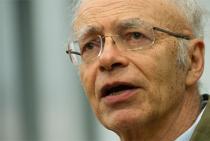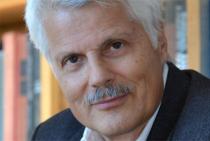In a joint statement at the weekend the United Nations humanitarian agencies called for the utmost respect of international humanitarian law by all parties in the ongoing Middle East conflict. “Gaza was a desperate humanitarian situation before the most recent hostilities. It is now catastrophic. The world must do more,” said the UNDP, UNFPA, UNICEF, WFP and WHO statement on humanitarian supplies crossing into Gaza, on 21 October. The statement which did not name the warring parties, described the humanitarian crisis and called for a humanitarian ceasefire and immediate access for distribution of aid supplies.
You are here
Results for world affairs
Monday 23 October 2023
Geneva, New York, Rome
Thursday 12 October 2023
Princeton, USA
Hamas’s brazen and vicious attacks within Israel have rightly drawn condemnation from around the world. If this is a war, as both sides agree it is, then Hamas’s deliberate targeting of civilians counts as a major war crime. But the brutality demonstrated by Hamas did not emerge in a vacuum. The lesson of what is currently happening in Israel and Gaza is that violence breeds more violence. The last real chance of avoiding the tragic conflict being waged between Israel and Hamas was destroyed by a single killing: the assassination of Israeli Prime Minister Yitzhak Rabin in 1995. The assassin was not a Palestinian militant, but an Israeli extremist opposed to the Oslo Accords for peace. The great beneficiaries of the assassination were Israeli nationalists, above all Binyamin Netanyahu.
Monday 6 January 2020
Washington DC, USA
Before US President Donald Trump decided to withdraw his country from the Joint Comprehensive Plan of Action (JCPOA) in May 2018, Javad Zarif, Iran’s foreign minister and the nuclear agreement’s chief Iranian architect, was the most popular public figure in his country. A year after the withdrawal, a University of Maryland poll shows, Zarif’s popularity was far surpassed by that of General Qassem Suleimani, the hardline Revolutionary Guard commander who was just assassinated in Baghdad on Trump’s order. Trump says he authorized the drone strike that killed Suleimani to “stop a war.” It is far more likely that he has started one – or at least the march toward one. By Djavad Salehi-Isfahani.
Monday 29 July 2019
New York, USA
How did the world’s two most venerable and influential democracies – the United Kingdom and the United States – end up with Donald Trump and Boris Johnson at the helm? Trump is not wrong to call Johnson the “Britain Trump” (sic). Nor is this merely a matter of similar personalities or styles: it is also a reflection of glaring flaws in the political institutions that enabled such men to win power. By Jeffrey D. Sachs.
Monday 11 December 2017
New York, USA
Globalization, which was supposed to benefit developed and developing countries alike, is now reviled almost everywhere, as the political backlash in Europe and the US in recent years has shown. The challenge is to minimize the risk that the backlash will intensify, and that starts by understanding – and avoiding – past mistakes.
Thursday 13 April 2017
Cambridge-MA, USA
I frequently travel overseas, and invariably my foreign friends ask, with varying degrees of bewilderment: What in the world is going on in your country? Here is what I say. By Joseph S. Nye.








